- Home
- Alex Berenson
The Shadow Patrol jw-6 Page 6
The Shadow Patrol jw-6 Read online
Page 6
Fowler stepped forward, then hesitated, holding his left leg off the ground with the exaggerated care of Inspector Clouseau. He could explain everything he’d done so far. He could say he’d come up for orders. But if he sneaked up to the house to see what Rodriguez was doing inside… Spying on a sergeant was definitely a no-no.
But maybe he wasn’t spying at all. Maybe they needed him. Maybe the Talibs had captured Rodriguez and Roman. Fowler imagined them tied back-to-back. They looked up in awe as Fowler picked off the insurgents one by one, with the practiced double taps of a Special Forces lifer. Fowler saluted them casually: No need to thank me. Just doing my job. The vision was ridiculous. Still, it spurred him. He crossed the yard, pressed himself against the house.
And heard a voice. A woman. Moaning quietly. Had he stumbled on a brothel? Impossible. The Afghans stoned women to death just for talking to men. Fowler inched along the side of the house to a window covered by a wrought-iron grille. He lowered himself to his knees, peeked in—
And found himself watching porn. The video was playing on a television propped against the back wall. Rodriguez and Roman had come here to watch porn? Fowler didn’t get it. Then he looked around the room and—
Everything made sense. Roman sat against the wall, a glass pipe in one hand, lighter in the other. He flicked the lighter to the pipe and sucked, greedy as a newborn. He exhaled a gray cloud and rubbed his stomach happily. “Good smoke,” he said to the ceiling. “Steep and deep.”
Rodriguez ignored the commentary. He stood next to a wooden table as the Afghan with the scar put two plastic-wrapped bricks on a digital scale. “Two point zero exactly. Sixteen kilos total.”
Rodriguez pulled a Ka-Bar, a knife, off his belt. He carefully sliced the plastic around one of the bricks. “What is that?” the Afghan said.
“Testing, one, two, three.” Rodriguez pulled a pouch from his backpack. “Soon as this powder in here turns green, we’re ready to go.”
“I promise you, it’s good.”
“From the factory to you,” Roman said. “Buy direct and save.”
Rodriguez stepped to the television and kicked over the DVD player hooked to it, stopping the show. “Stand post at the front door, Roman. Lemme finish, get us out of here. We wasted too much time already.”
“Sir, respectfully point out that I am stoned to the gills and not at full combat readiness—”
Rodriguez snapped the pipe from Roman’s hand. “Now. Before I jam this down your throat.”
Fowler picked up his helmet, pushed himself up, inched along the wall. Then he heard Roman’s gear rattling inside the house and his composure broke. He ran for the gate.
Back on the street, he closed the gate as smoothly as he could. He checked over his shoulder. The house’s front door was just opening. Fowler squared his shoulders and walked back to Coleman Young. He didn’t look back. He was proud of himself for that much anyway.
“I miss anything?” Young said.
“No kebabs. The door was closed and I couldn’t decide whether to knock. I stood there until I felt stupid and left.”
“That’s it.”
“That’s it.”
“Huh. What happened to your pants?”
Fowler looked down. His knees were covered with a dark brown splotch that stank of diesel. He must have knelt in a puddle without realizing. It was the porn’s fault. The porn had distracted him. He wiped madly at the stain and succeeded only in covering his hands with a greasy film. Might as well be wearing a sign that said “I’ve been spying on you, Sergeant.”
“It was a drug deal. A big one. They had a scale.”
“Don’t tell me.”
“Kilos. It’s true.”
Young grabbed Fowler’s Kevlar, pulled him close. “I don’t care if it’s true. I don’t want to hear it.”
“What do I do, Coleman?”
“You keep your mouth shut, Private.” Young pushed Fowler back so hard that he nearly fell on his butt. “Be cool. They coming now.”
Fowler turned. Rodriguez and Roman walked toward him. The Afghan in the blue robe was gone. Probably still in the house, watching porn. A real good Muslim. Dealing smack to the infidels.
Roman grinned at them, pointed a finger pistol at Fowler. Fowler’s mouth went dry. If he didn’t calm down, he feared he might cry. “I’m not built for this, Sergeant,” he muttered.
“It’s all right, Ricky. Nothing’s gonna happen now. I’ll watch your back and we’ll talk later. Back at the FOB.” Young tapped out two Newports, handed one to Fowler. Fowler wiped his mouth, lit up, puffed away.
“Tastes like an air freshener.”
“Good for you. Makes your lungs all minty. Smile and salute.”
B Team rounded the corner as Rodriguez reached them. His backpack sat snug on his shoulders, Fowler saw. All that extra weight. “Anything to report?”
“That one shot,” Young said. “Nothing else.”
“All right. We’re done here then. Got a couple names. Probably junk but Weston’ll like it. He can give it to the G-2.” The battalion intelligence officer.
“They’ll give him a pat on the head and a present with a big red bow.”
“When Daddy’s happy, everybody’s happy.” Rodriguez poked at Fowler’s knees with the muzzle of his carbine. “What happened there, Private?”
“Sir. Figured I’d look over the left side of the villa. Fell in a puddle of diesel. I think it was diesel, anyway, sir. Smells like it.”
“Excellent soldiering. We get home, I’m signing you up for the Very Special Forces, where everybody’s a winner.”
“I think of myself as a very special soldier, sir.”
“Yes, you are. You see anything over there around the corner? Besides the puddle?”
Fowler held Rodriguez’s eyes. “Goats, Sergeant. Nothing but goats.”
“All right then. For showing that initiative, I’m giving you point on the way back, Private. Look alive. Do me proud.”
“Yes, sir.”
THEY SHUFFLED BACK toward Hamza Ali. For once, Fowler wasn’t worried about mines. He couldn’t stop thinking about the scale, those plastic-wrapped bricks. He’d seen drugs before. Heck, he’d grown up two hours from the Mexican border. He’d smoked pot like everyone else in the universe.
But buying heroin by the kilo was a different game. Fowler couldn’t figure what Rodriguez was doing with the stuff. He wasn’t selling it on base, that was for sure. And where did he get the money for it? Fowler didn’t know what a kilo of heroin cost, but even here at the source it had to be a couple thousand bucks.
Next question: Did everybody know what was going on? Was Fowler the only sucker in the squad? Young hadn’t seemed surprised. Although Young always acted so cool. No, if everybody knew, Rodriguez wouldn’t have bothered to hide the deal. So Fowler had a choice: keep his mouth shut, ride out the last couple months. Or go to the CID — the Army’s Criminal Investigative Division — which had offices at the big base at Kandahar. But if the CID officers came poking around, Rodriguez would probably guess that Fowler had snitched.
Maybe Young would have the answer. Fowler was almost embarrassed to be leaning so hard on Young, who was barely two years older than him. But Young got along with everybody. He had that black-guy way of being cool without working at it.
The squad was stretched out, moving slowly, half-assed. Fowler slowed down to let them catch up. Rodriguez was directly behind him, Roman on the other side of the canal. Fowler was glad that Young was watching.
When they got about three hundred meters outside Hamza Ali, Fowler saw clumps of men and boys walking toward him. The show at the school must have ended. Fowler had forgotten all about the Stupid Afghan Tricks. The kids made a game of jumping across the canal, their gowns ballooning around their legs. A boy kicked one of the soccer balls that the platoon had handed out, his steps as precise as Fowler’s mom dicing an onion, back home in the kitchen. Fowler wished he could be there now.
The boy poppe
d the ball into the air and headed it to himself. Kids were kids everywhere. Fowler smiled. “Hey,” he yelled. Fowler pointed at himself. “Kick it here. Me.” The kid hesitated and then kicked a perfect curling strike that soared out of the canal toward him—
AND EXPLODED.
Fowler heard the shots after he saw the ball disintegrate. They came from the right side of the canal, away from the village, an AK magazine fired on full auto.
Fowler jumped into the canal for cover and spun to find the shooter. To his right, the rest of the squad followed. They were stretched in a line, rifles at the ready. The fields in front of them looked empty. Then Fowler saw the shooter. It was the Afghan with the scar, the one who’d sold the drugs to Rodriguez. He was a long way off, at least four hundred meters, and sneaking along a low wall perpendicular to the canal. He was doubled over like he had a bad case of the runs.
For once, Fowler wasn’t afraid. His training took over. He grabbed the rough stone at the edge of the canal and pulled himself up to get a clean shot. He didn’t squeeze too tight and he led the target. He thought he had the guy.
But he missed. The dude was just too far off and too low and too many walls were in the way. Fowler aimed again, tightened his finger on the trigger—
He never heard the shot that cut his spinal cord in half. Didn’t feel it either. The pain faded as quickly as it bloomed. The earth rushed up to him and caught his chin. He didn’t understand what had happened to him, couldn’t frame this new place he’d gone. This lost country.
Pure confusion. He stood up, but he didn’t. His legs didn’t work, or his arms. The dark trickled into his eyes and his brain got thirsty and he needed air. So he took a breath but nothing happened. He had to breathe. Breathing was easy. Everyone could breathe. But not Fowler. Then the fear, panic, a pure white panic that flared against the black, but the black came on, stronger and stronger, and the white shrank to a pinprick and then nothing at all and—
He died.
YOUNG WAS CLOSEST to Fowler and the first to realize what had happened, that he’d been shot from behind, from somewhere in the fields between the canal and Hamza Ali. Young ran to Fowler. The others followed. They pulled his body into the canal and set up a perimeter and screamed at the villagers to get back, back, back.
Rodriguez got on his radio, called Weston. The rest of the platoon arrived minutes later. But the shooter was gone by the time they reached the huts behind the canal that were the most likely firing point. None of the villagers had anything to say. No one had seen anything. And so the Lost Boys of Bravo Company could do nothing but carry Fowler’s corpse back to their $2 million Strykers.
The guys didn’t talk much on the ride back to FOB Jackson. When they did, they cursed Hamza Ali and the Taliban, and Fowler, too, for his bad luck. Everybody figured he’d died in a freak ambush. He was the kind of guy who worried so much that he attracted his own trouble. Bad karma. Coleman Young didn’t say a word. But as he sat on the bench next to the empty space where Fowler should have been, he wondered who had killed Fowler. Rodriguez and Roman couldn’t have. The shot had come from behind the squad. Which meant someone else in the platoon was involved.
Young went through the likely suspects in his mind. One name stood out. He wondered what he should do. If anything. Three months left on this tour. Coleman Young closed his eyes and thought of home.
4
LANGLEY, VIRGINIA
The floors at CIA headquarters were not created equal.
Take the third floor of the New Headquarters Building, home to the unit once called the Directorate of Administration and now known as the Directorate of Support. On its public Web site, which existed mainly as a recruiting tool, the CIA did its best to make the DS sound exciting: “Our job is to ensure that all our mission elements have everything they need for success… while the support we provide may be invisible — the results certainly are not!”
Invisible indeed. The agency’s more glamorous divisions hardly noticed the DS’s existence. But the directorate’s employees soldiered on, administering health plans, making sure the agency wasn’t overcharged for printer paper, and approving the world’s strangest expense reports: Six vials cobra antivenom: $360. No one but DS employees ever went to the third floor of the NHB.
Which made it the perfect place for a sterile room.
BC1-3-114 had once been a supply closet. The evacuation plans that the DS so meticulously maintained still identified it as one. The only clue to its new use came from the keypad and thumb reader that opened its magnetic door lock. Inside, it held a steel desk, two battered chairs, a phone — and a computer that with the right passwords could access any agency database. Even ones that were supposed to be available only on much more important floors.
SHAFER HAD JUST EXPLAINED the setup to Wells, who was back at Langley for the first time in almost a year. He’d come directly from Montana, not even stopping in New Hampshire for a change of clothes.
“Doesn’t a room like this violate every rule of computer security ever created?”
“Every and ever are redundant, John. And have you been studying network architecture in your spare time?”
“Seriously, Ellis?”
“Seriously. First, you need passwords. Both on this end and for the database you’re accessing. Second, the mirroring software works only in this room. Third, and most important, nobody knows it’s here.”
“Who exactly is nobody?”
“Me, Vinny, a couple others. We installed it last year, and it’s been used only twice, in situations like this, when we want to get somebody up to speed quietly. This way, you can read every file from Kabul station and nobody will know.”
“I get it, Ellis.” Despite all Wells had done, Shafer still sometimes treated him like a quarterback who needed extra time in the video room.
“Okay, you get it.”
“What I don’t get is what I’m looking for.”
“Just read.”
THE CASE FILES from Kabul painted a bleak picture. The station was the ultimate hardship post. Officers left their families on another continent and risked kidnapping and assassination every day. Unlike the Army or Marines, the CIA was a civilian organization that couldn’t order its employees to take dangerous jobs. Most officers stayed a few months, just long enough to put an Afghan posting on their résumés.
Building real relationships with the tribal chiefs who ran Afghanistan took much longer. That work fell to a cadre of hard-core operatives who lived in Kabul for years. By mid-2009, their efforts were paying off. They were a long way from the leaders of the Taliban or al-Qaeda, but they were moving up the ranks.
Then Marburg showed up.
The Marburg reports covered sixteen hundred pages and included scores of photographs, everything from the first surveillance shots of Rashid to the carnage at Camp Holux. A separate file contained the video from the Karachi hotel where Marci Holm had met Ahmad Rashid. The file ended with the eighty-nine-page after-action report from the agency’s internal investigation.
The report’s language was passive, but its meaning was clear. The agency blamed Manny Cota and Marci Holm for the disaster.
SUMMARY/CONCLUSIONS
MARBURG penetrated Holux due to avoidable operational error. It is true that some agents initially reject physical searches. The successful case officer must overcome those doubts and convince the agent that a pat-down protects both CO and agent. Holm never established those ground rules with MARBURG. Holm did not explain in her case reports why she did not insist that MARBURG be searched. Other officers recall that Holm said she found MARBURG personally charming.
Both Holm and Cota believed that MARBURG had extremely high-value intelligence. In their eagerness, the officers missed warning signs, most notably the ease with which MARBURG supposedly penetrated AQ. It is simply not credible that an outsider such as MARBURG would meet Ayman al-Zawahiri so quickly.
Once the officer who picked up MARBURG questioned whether he might be wearing a
n explosive vest, prudence and protocol dictated a physical search. Either Holm or Cota should have insisted on such a search.
RECOMMENDATIONS
1) Case officers must inform ALL sources/agents that they will be patted down before being allowed onto any secure facility. If an agent protests, his or her officer will explain that the rule must be followed without exception.
2) No more than five agency officers/contractors shall be present at any meeting with an agent. A closed-circuit video link may be provided for additional officers. Authorization at the DD or higher level shall be required to override this rule.
3) Case officers shall encourage agents to take regular polygraph tests. If an agent resists, cash compensation may be offered.
The recommendations continued for several pages. Some made sense, like limiting the size of meetings. Others were irrelevant, like the suggestion that all spies should be polygraphed. That idea might have sounded good at Langley, but it had nothing to do with the way case officers actually worked.
All in all, the report was what Wells expected. The agency had to hold someone responsible for this disaster, if only so that it could tell its political masters what it had learned from its mistakes. Holm and Cota couldn’t defend themselves, so they’d taken the blame. The nastiest line in the report was a throwaway, that Holm “found MARBURG personally charming.” The implication was obvious.
In the video from Karachi, Rashid had impressed Wells as smooth and convincing, right down to his supposed concerns about his family. Wells wasn’t sure that he would have known Rashid was a double. But he would have searched Rashid before letting him inside Holux. Pat-downs were a part of life these days. For whatever reason, Holm had let him through. Two-plus years later, Kabul station was still recovering.
Duto had appointed Jimmy Wultse to replace Cota as station chief just seventy-two hours after the bombing. The choice had seemed solid. Wultse, the chief for Tajikistan, knew Afghan politics intimately. Unfortunately, he also had a drinking problem. He’d managed it in Dushanbe, but the stress of Kabul turned him into a full-blown alcoholic. After four months, Duto ordered him back to the United States for rehab.

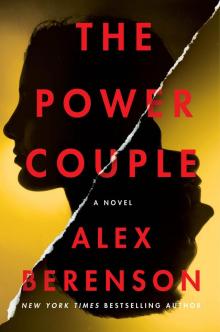 The Power Couple
The Power Couple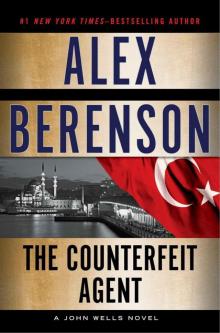 The Counterfeit Agent
The Counterfeit Agent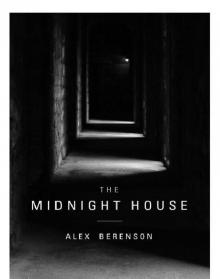 The Midnight House
The Midnight House The Prisoner
The Prisoner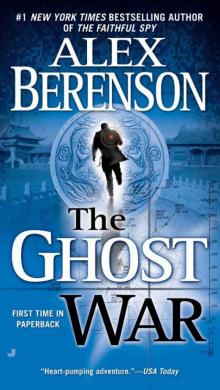 The Ghost War
The Ghost War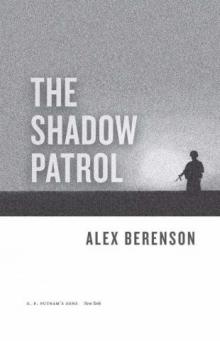 The Shadow Patrol jw-6
The Shadow Patrol jw-6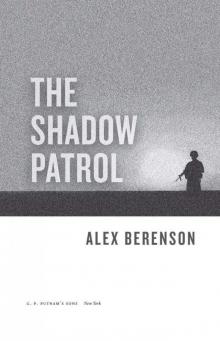 The Shadow Patrol
The Shadow Patrol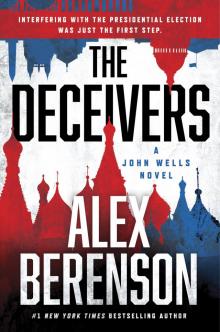 The Deceivers
The Deceivers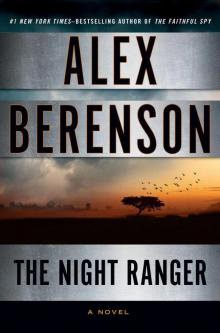 The Night Ranger jw-7
The Night Ranger jw-7 The Faithful Spy
The Faithful Spy The Prince of Beers (Kindle Single)
The Prince of Beers (Kindle Single)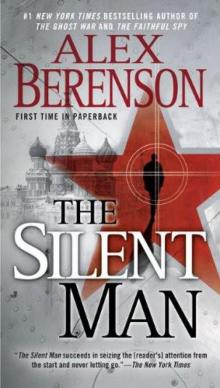 The Silent Man jw-3
The Silent Man jw-3 The Silent Man
The Silent Man The Wolves
The Wolves The Midnight House jw-4
The Midnight House jw-4 The Ghost Agent
The Ghost Agent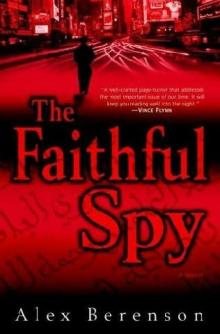 The Faithful Spy jw-1
The Faithful Spy jw-1 The Prince of Beers
The Prince of Beers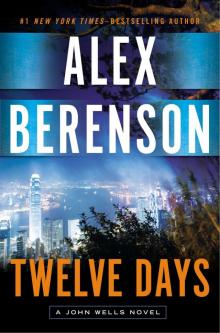 Twelve Days
Twelve Days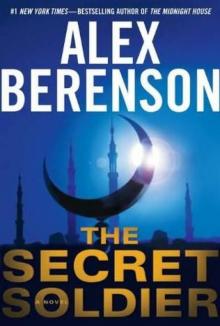 The Secret Soldier jw-5
The Secret Soldier jw-5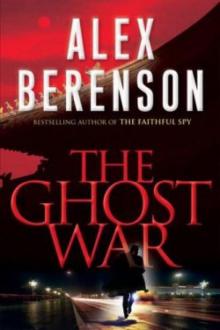 The Ghost War jw-2
The Ghost War jw-2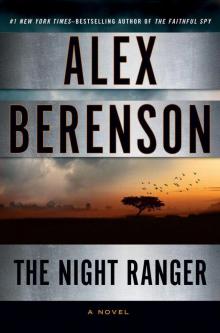 The Night Ranger
The Night Ranger